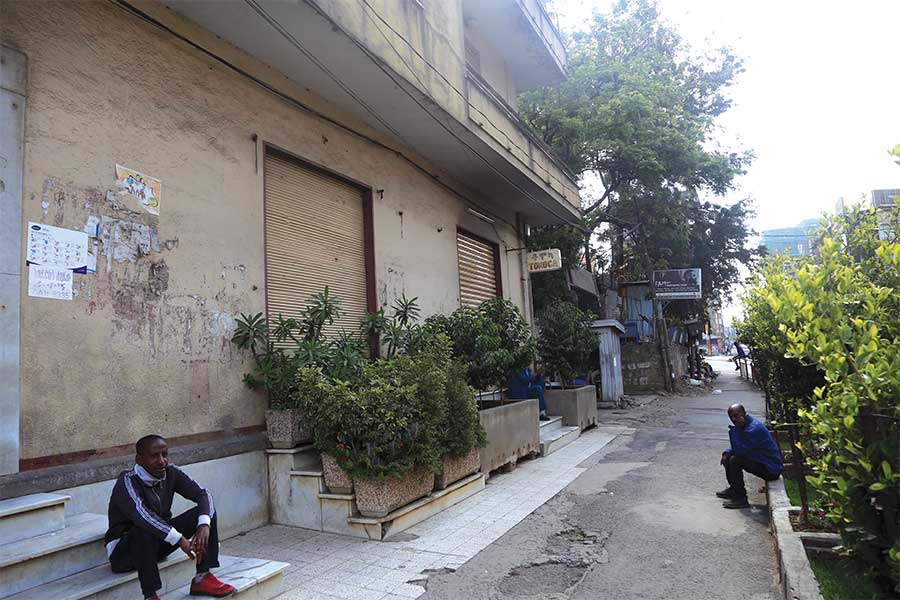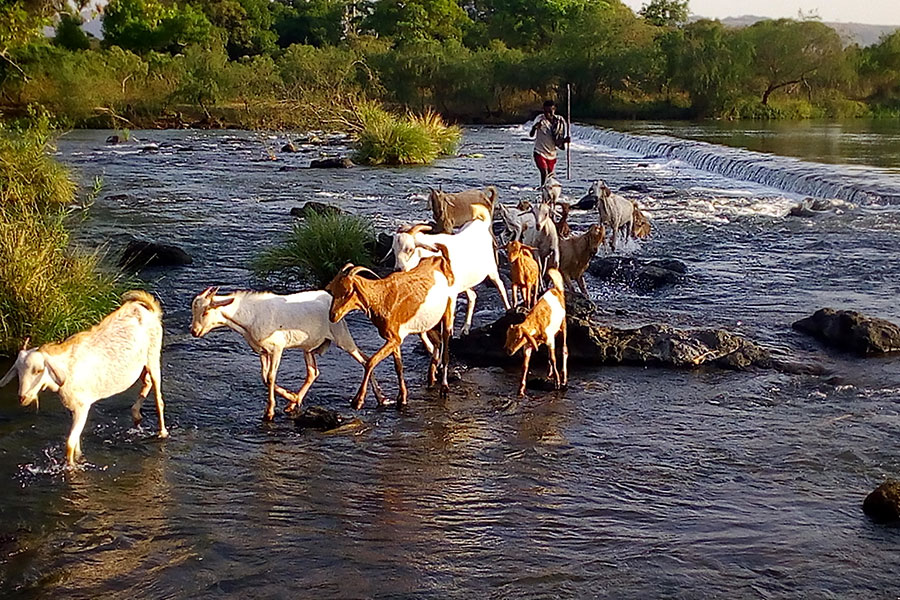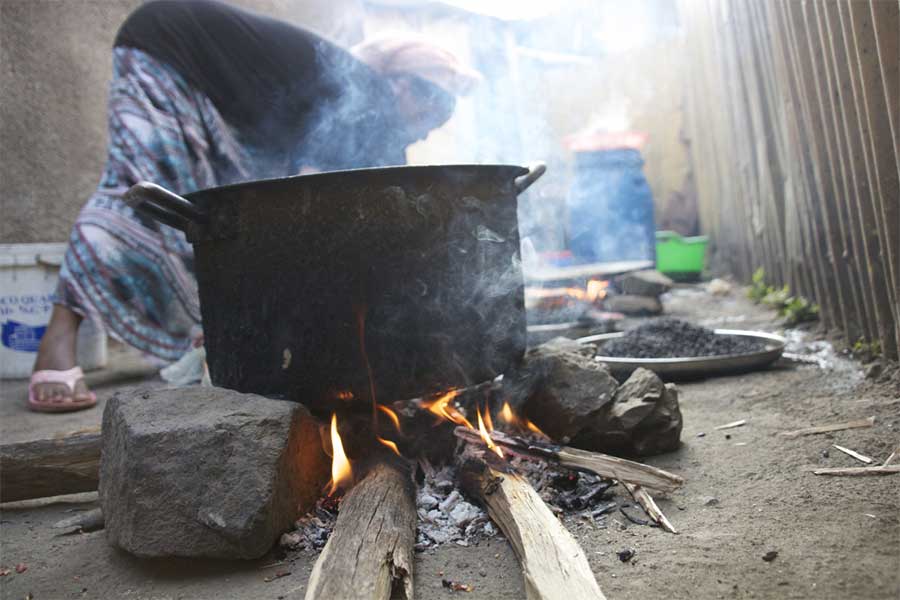
Radar | Nov 03,2024
Aug 22 , 2020
By Yonas Biru (PhD)
There are two groups that have been rather silent when it comes to the Nile discourse between Ethiopia and Egypt: women and the business class. This is unfortunate and needs to change considering that they have the most to gain from the Grand Ethiopian Rennaissance Dam (GERD), writes Yonas Biru (PhD) (biruyonas@yahoo.com), former deputy global manager of the International Comparison Programme at the World Bank and founder and chair of the Nile Club.
The Ethiopian business community has contributed its fair share of funds to the construction of the Grand Ethiopian Renaissance Dam (GERD) by buying bonds. Commendable though this may be, the community seems to be a victim of the conventional thinking that as long as it checked off the financial contribution box, it need not concern itself with larger social discourse regarding the project.
When completed and fully operational, the GERD will have the capacity to produce 5.2GW of electricity, making it the largest hydroelectric power plant in Africa and the seventh largest in the world. Power outages, rationing of electricity and intermittent use of standby generators that impose extra costs to the business community will be significantly mitigated.
The availability of affordable, reliable and accessible electricity plays an important role in spurring businesses and unlocking opportunities for joint ventures with international investors.
It will unleash Ethiopia’s agricultural riches and turbocharge its industrial potential. The paradigm-changing Dam really resides at the nexus of Ethiopia’s modernisation and its energy, water and food security. The business community stands to benefit from it tremendously.
Indeed, delaying the operation of the hydroelectric project by five years will cost Ethiopia 41.7 billion dollars in lost opportunities, according to an economic assessment taken by a task force formed of Ethiopian diaspora and local water experts [the task force was chaired by the author of this article].
“As high as the figure seems, it is only partial, since the scope of the study is limited and does not capture the full cost of the delay of the [water] filling process,” the study underscores.
There are two reasons why the business community needs to take a proactive and substantial role in the Nile discourse. Primarily, Egypt’s efforts in objecting and sabotaging the construction and operation of the Dam is a direct assault to the future bottom line of the business community in Ethiopia.
Egypt sees the GERD as the kernel of energy for businesses that will propel Ethiopia’s economy, spurring industrialisation and facilitating technological change and low-cost production methods. Egypt also understands the hydropower will help improve energy deficits in other Horn of Africa economies and plant the seed for Ethiopia-centred regional economic integration. It will jump-start the fledgling East African economic community. Simply put, Egypt regards the GERD as a threat to its business, political and military primacy in the region.
Egyptian businesses are part of the GERD and Nile discourse with notable influence in strategic policymaking. They work closely with Egyptian think tanks, universities and the government to advance their interests and push back against Ethiopia’s drive for industrialisation.
Take Egypt’s Arab Water Council – a think tank run by a former Egyptian minister and sponsored and financed by the business community. The Water Council articulates the business communities’ interests and influences government policies and actions. When Reverend Jesse Jackson wrote a powerful letter to the US Congressional Black Caucus to stand on the side of Ethiopia, it was the president of the Council, Mahmoud A. Abu-Zeid (PhD), that responded.
Leaving aside the need to counterbalance the influence of Egyptian businesses on the Nile discourse, Ethiopian businesses have other compelling reasons why they need to be proactively engaged in the GERD development policy.
They need to influence government policy on energy production and distribution. One important venue for such an endeavour is a university-based think tank that operates at the nexus of public policy, advocacy and research.
The earlier the business community engages the government in the process, the more influence it will have, including in opening up possibilities for joint ventures between local and international businesses. Understanding government energy policy and demand help the business community to plan ahead and influence the course of events. In India, the early engagement of the business community in government policy in the 1990s contributed significantly to ensuring the private sector’s competitiveness on the international stage.
On its part, the government must make a determined effort to foster a culture of developmental partnership and genuine consultation with the business community as an equal in all agenda-setting and policy implementation processes.
Another group that the GERD will uplift is women. To understand this, we need to look at a number of pieces of critical data. Access to clean fuels and technologies for cooking is had by 97.6pc of the population in Egypt, while the average for sub-Saharan Africa is 14.3pc. The figure for Ethiopia is a meagre 3.5pc. Take Egypt’s per capita access to energy - 1,683 kilowatts. The average for Sub-Saharan Africa is 483 kilowatts per capita, while the figure for Ethiopia is 69 kilowatts per capita.
Ethiopia’s data is not much better in terms of access to clean water. Less than a quarter of the Ethiopian population has access to clean drinking water, according to We Are Water Foundation, an NGO.
How does Ethiopia survive without energy and drinking water?
The nation rides on the shoulders and backs of women. They are its energy in servitude, until death.
From the cradle to the grave, women carry Ethiopia on their back, literally. Girls are condemned to fetching water from miles away rather than going to school. Their mothers travel just as far and spend just as much time collecting firewood.
In rural Ethiopia, “many women and children walk more than three hours to collect water, often from shallow wells or unprotected ponds they share with animals,” according to a survey by Water.org, a nonprofit organisation.
Ethiopian women, including “the old, disabled, pregnant women and nursing mothers[,] walk as far as five kilometres to collect and fetch firewood," adds a report by the International Federation of the Red Cross.
Cooking with firewood is the primary cause of exposure to chronic smoke inhalation related diseases for Ethiopian women. A 2008 report by Edelstein et al, “Awareness of Health Effects of Cooking Smoke Among Women in the Gonder Region of Ethiopia,” found that 80pc of the rural women in the region experience chronic smoke inhalation problems caused by cooking practices.
The only region in the world where the use of traditional biomass fuels - firewood and animal waste - are used by the largest proportion of the population and where its use is increasing for cooking is Sub-Saharan Africa. A closer look at Ethiopia showed that 98pc of the population relies on biomass fuels and approximately 46,000 deaths a year are attributed to exposure to household air pollution, according to a 2018 study at the University of California. This includes over 21,000 child deaths due mostly to pneumonia.
The GERD means the emancipation of Ethiopian women. There are few other factors, if any – moral or economic - more important in liberating many girls and women from the misery that they are subjected to from cradle to grave than the development of energy-producing projects.
Ethiopian women's organisations carry a historical burden to speak up on behalf of millions of voiceless girls and women. The interventions by Egypt, the Arab League, the World Bank and the US to delay and scale back the GERD is a setback for women. It is a revocation of the "proclamation" of the emancipation of Ethiopian girls and women that promises to perpetuate their servitude.
Ethiopian women must stand up, surge forward and shout aloud, “Not on our watch,” so we men can stand up and march behind them to echo their voices.
PUBLISHED ON
Aug 22,2020 [ VOL
21 , NO
1060]


Radar | Nov 03,2024

Sunday with Eden | Oct 08,2022

Commentaries | Jan 05,2019

Fortune News | Apr 04,2020

Editorial | Aug 30,2025

Editorial | Feb 15,2020

Radar | Mar 07,2020

Viewpoints | Jun 05,2021

View From Arada | Feb 15,2020

Fortune News | Mar 02,2019

Photo Gallery | 175504 Views | May 06,2019

Photo Gallery | 165724 Views | Apr 26,2019

Photo Gallery | 156075 Views | Oct 06,2021

My Opinion | 136826 Views | Aug 14,2021

Dec 22 , 2024 . By TIZITA SHEWAFERAW
Charged with transforming colossal state-owned enterprises into modern and competitiv...

Aug 18 , 2024 . By AKSAH ITALO
Although predictable Yonas Zerihun's job in the ride-hailing service is not immune to...

Jul 28 , 2024 . By TIZITA SHEWAFERAW
Unhabitual, perhaps too many, Samuel Gebreyohannes, 38, used to occasionally enjoy a couple of beers at breakfast. However, he recently swit...

Jul 13 , 2024 . By AKSAH ITALO
Investors who rely on tractors, trucks, and field vehicles for commuting, transporting commodities, and f...

Oct 18 , 2025
The political establishment, notably the ruling party and its top brass, has become p...

Oct 11 , 2025
Ladislas Farago, a roving Associated Press (AP) correspondent, arrived in Ethiopia in...

Oct 4 , 2025
Eyob Tekalegn (PhD) had been in the Governor's chair for only weeks when, on Septembe...

Sep 27 , 2025
Four years into an experiment with “shock therapy” in education, the national moo...

Oct 18 , 2025 . By NAHOM AYELE
In a sweeping reform that upends nearly a decade of uniform health insurance contribu...

Oct 18 , 2025 . By BEZAWIT HULUAGER
A bill that could transform the nutritional state sits in a limbo, even as the countr...

Oct 18 , 2025 . By SURAFEL MULUGETA
A long-planned directive to curb carbon emissions from fossil-fuel-powered vehicles h...

Oct 18 , 2025 . By BEZAWIT HULUAGER
Transaction advisors working with companies that hold over a quarter of a billion Bir...